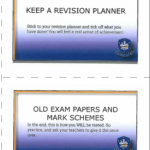As teachers, we are constantly reminding our students to study. We often get frustrated by capable students who we assume are not bothing to put in the work. My eyes were opened when talking to a good student about his poor results, and he told me to stop worrying. Why I asked? “Well miss,” he said, “I know what to do now.”
“Know what?,” I asked, slightly confused. “Know how to study,” he replied.
At that moment I realised my assumption that students or even their parents know how to study was dangerous.
Earlier this year I experienced a Karen Boyes study skills workshop. I originally enrolled thinking I would get ideas for my students that I could pass on. However, after experiencing her engaging presentation I knew I had to get her in for my students.
During her presentation to the senior classes, Karen addressed the students’ concerns about not knowing how to study and showed them approaches they could use.
As the students left the hall excited and motivated to start their studies, I thought about the possibility that they wouldn’t be able to maintain the enthusiasm for studying. As many wise people have said, “a journey begins with a single step.” This was the step, but support was needed for the students to be independent. My understanding of this fact led me to create a handy tool that would be a constant reinforcement for the students — flashcards. They provide a quick, easy and constant reminder of what Karen presented in the workshop. They allow for conversations with parents on ways to study or to explain what they are doing.
For example, not many parents understand that seeing their child talking into their phone could an effective study technique, but by discussing the “make a recording” flash card, a student can possibly avoid conflict with parents.
 The study flashdeck has a number of business-sized flash cards that show different ideas for ways to study that were discussed in the workshop, ranging from the traditional, yet still effective, to the innovative and dramatic. The study ideas are not my own, I have adapted them (with permission) from a study programme delivered to students in my previous school in England and tips given in Karen’s workshop. By putting them in the flashcard format, it provided a gimmick that students may remember and also provided an example of what revision cards look like and how effective they can be.
The study flashdeck has a number of business-sized flash cards that show different ideas for ways to study that were discussed in the workshop, ranging from the traditional, yet still effective, to the innovative and dramatic. The study ideas are not my own, I have adapted them (with permission) from a study programme delivered to students in my previous school in England and tips given in Karen’s workshop. By putting them in the flashcard format, it provided a gimmick that students may remember and also provided an example of what revision cards look like and how effective they can be.
Some people can read something several times and remember it; however, most of us aren’t that lucky. Many of the study ideas are simple, yet effective. Creating a poster of information that is required is far more fun than reading over the notes several times or rewriting in a book where the information is hidden away. Parents then also have the opportunity to be aware of what the students need to know and can ask questions, creating positive conversations.
Parents can get involved in other ways, such as by “being a manager” or offering “prize bribes,” again opening that dialogue between parent and child that is productive.
Mind maps are tools that have been around since I was at school, but in this day and age students can do it the traditional way or use mind mapping programmes such as Popplet. Incorporating ICT (Information and Communications Technology) into the study programme can be effective for some students (as long as they can avoid the traps of being online). However, the main idea of organising their thinking is still being used and students can look at mind maps in exams to plan large essays. The more they use them in their study time the more effective it will be in exams.
I have horrible memories of sitting down to revise for exams and reading the textbook trying to find a place where to start my study from. However, at school I found revision much better. The difference was that at school we planned our revision. When I was a student at boarding school every morning we would talk about what we were going to do and then disappeared into our rooms to do it. There was a real sense of achievement at each break when you could proudly say how much of it you had achieved. That’s why I have included “Keep a revision planner” as one of the tips.
We can never stop looking at past papers. Students need to know what the exam paper will look like and what the examiner expects the answers to look like. Applying the knowledge to different possible situations is, in my opinion, fundamentally important. But there are other tips like “make it silly” or “poems and raps” that mix it up a bit for the students, making revision time interesting and not a drag.
I challenge you to ask your students how they study. You may be as surprised as I was when you hear their replies, or lack of. The risk of assuming that everyone knows how to study is too great. We need to remember the cream doesn’t always rise to the top, and we need to give our students the best opportunities to succeed in school and beyond.
